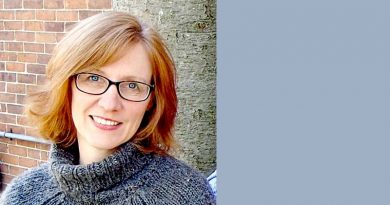Coping with Inherited Guilt
By Cole Hartin
ONE OF THE ARGUMENTS atheists sometimes like to trot out to discredit Christianity, or Judaism for that matter (though the latter is a less fashionable target), is the vengeance of God as it appears in the Old Testament. All of the violence and punishment for sin in the old covenant catches even believers off-guard. Occasionally the troubling parts of the Bible provide a platform for Christian celebrities to grandstand their own dreary loss of faith narratives. These stories are predictable and generally dull.
Even more nuanced rejections of faith, like the kind we see played out in Dostoyevsky’s Brothers Karamazov, are more emotive than logical. For Ivan Karamazov, like many of us, to encounter God permitting, or worse, willing, the suffering of human beings feels “evil,” or to use a word laden with less moral baggage, “harsh.” I have in mind the instructions that God gives Israel for entering into the promised land, that “as for the towns of these peoples that the Lord your God is giving you as an inheritance, you must not let anything that breathes remain alive” (Deuteronomy 20:18) or earlier on, the destruction of Sodom and Gomorrah in Genesis 19. Setting aside the figurative interpretations of these texts that were normative in the first centuries of Christianity (See St. Augustine of Hippo and Origen, for example) as well as their mitigating contexts (especially the horrific practices of some pagan tribes and their unwillingness to heed divine warnings) there is something deeply unsettling about the God of Christian Scripture, even when his wrath is set against the backdrop of forgiveness and grace.
I might also add to the blacklist against God the concept of inherited guilt and the responsibility that goes with it, what with the Lord “punishing children for the iniquity of parents, to the third and fourth generation of those who reject me” (Deuteronomy 5:9).
That an individual should be morally responsible for the wrongdoing of her great-grandparents and held to account for it in one manner or another seems outlandish and arcane – until suddenly it isn’t. In a progressive society like Canada’s, the frantic attempts to push aside worn-out religious tropes for the new dogma of inclusivity and diversity have failed to erase the old Western Christian doctrine of transmission of sin’s effects from one generation to another. Ironically, while the Christian doctrine is sustained by the belief in an omnipotent God who is most fully revealed in Jesus Christ, the secularized version of inherited guilt has become a kind of free-floating principle that exists by necessity. The reality of inherited guilt has been thrust into the consciences of Canadians not directly, but as a corollary to the attempts to come to terms with residential schools and the suppression of Indigeneity over the past centuries and decades.
It’s not that inherited guilt is controversial; in fact it is seldom given any direct attention. Rather it is a fundamental belief or baseline conviction that is necessary to make sense of any of the ferment around Indigenous issues in Canada, or much of the discourse about race in other countries. It seems that one simply must accept that if members of one’s race are responsible for violence against members of another race, that one is, by virtue of this shared heritage, also an accomplice to the crime. While sharing in the punishment due our criminal ancestors is not necessary at this point, federally funded shows of remorse, apology, and acknowledgement of the wrong are expected.
The biblical conception of inherited guilt, and maybe with it the Western formulation of original sin, has been mingled with the secular grasps at coming to terms with Canada’s checkered past, especially when it comes to the treatment of Indigenous people. This has certainly been the case in the Anglican Church of Canada along with the other largely old and largely white mainline denominations. Recently, Indigenous Anglicans have been granted more autonomy in the denomination, an evolution for the better, in my mind. Further, though each diocese has its own practice, all worship gatherings are generally expected to make a territorial acknowledgement, which, while no doubt well-meaning, at times seems like another attempt at virtue signalling.
I have obeyed the direction to make this acknowledgement each week, though in our parish we do so in print. But seeing the acknowledgement in our bulletin each week always feels a bit troubling to me. It’s not that I don’t find the impulse to restore justice a laudable one. I do. And for all of the political maneuvering, I think repentance is fitting and appropriate. But to simply acknowledge that the land on which my congregation has worshiped for a couple of centuries does not belong to them and never really did seems like a confession I might want to make only if I am planning to make restitution. Not that my parishioners or I had any personal part in the past conflicts between Anglo-Canadians and Indigenous people, or the conflicts that the French had with the First Peoples before this. Still, even if I accept this instance of inherited guilt, my short ministry has been enough to teach me that true confession necessarily involves repentance, and repentance requires the amendment of life. If the land we’ve stolen is really that – stolen – and we can identify the peoples to whom it belongs, why not return it? I can’t imagine confronting a person to tell him I’ve stolen his car, that I’m sorry, that he’s been served injustice at my hands (and the hands of my ancestors) before driving off to enjoy his vehicle for the rest of my life. The confession has the air of a taunt rather than anything involving real contrition.
If I’m honest, I have to admit that some form of inherited guilt makes senses to me as a Christian. As I said at the outset, the God Christians worship promises to curse me and my descendants if I disregard his laws, and to bless us if we keep them. The God we worship also took that curse into the body of his Son as he hung naked on a cross. What I find so unnerving in the secular doctrine of inherited guilt is that it has jettisoned any thought of God, leaving it without any theological scaffolding – such as the path to redemption and true reconciliation.
COVID-19 has drummed up some further societal anxiety because of our inherited guilt. We know we must somehow be at fault for the disease, but we are not sure why. What’s more, it’s never for the moral acts of individuals, but rather societal transgressions, such as human-accelerated climate change (even the Pope has championed a version of this), or capitalism (why not?). Of course, it would be a faux pas (and tremendously hubristic) to suggest that so-and-so contracted COVID-19 because they are an adulterer or because they haven’t kept the Sabbath, though suggesting we’ve all been hit with the pandemic because humans live on too much of the planet is fine.
Whether it is the guilt inherited from our ancestors because of their treatment of Indigenous people or the suffering that has been meted out to us in the pandemic because of our societal unrighteousness, there is a sense that there is some force in the world righting injustice. Canadians simply remain deeply religious in the truest sense, believing that our society – like the biblical Israel – will be rewarded for our righteousness and punished for our sins. However, our secular religion lacks any discernible deity, and thus, it lacks any divine law. Instead, we are trying to keep in line with a quickly evolving progressive common law devoid of any ontological rooting. In other words, we are cobbling together what sounds right to us at the time, with only a vague hope that it will do anything to erase the genuine wrongs in our history.
My hope is that in the Church things will be different, that if we are going to speak of inherited guilt it would be rooted not in secular admonitions to be better people but in the Gospel of Jesus Christ. Moreover, I would hope that seeing our collective failure would not leave us trudging around remorseful and sullen for the rest of our lives, but it would lead us to the cross where we can find forgiveness and grace. TAP
The Rev. Dr. Cole Hartin is rector of St. Luke’s Church, Saint John, NB, where he lives with his wife and three sons.




